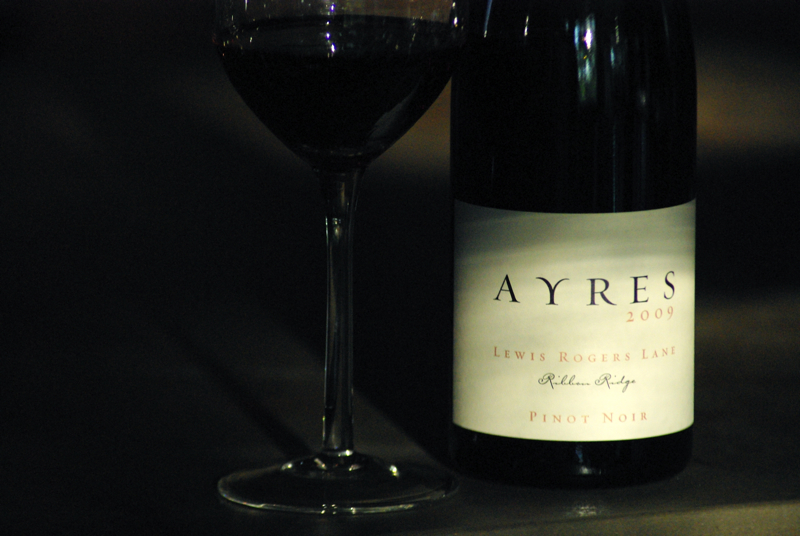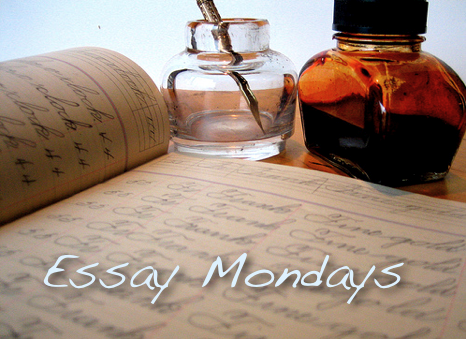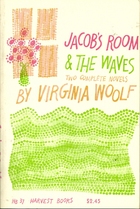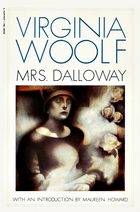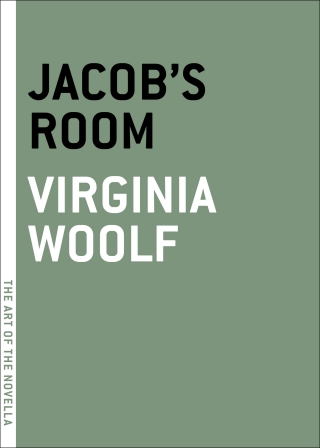
Except for Flush and The Voyage Out, which I have yet to read at all (!), Jacob's Room is one of Virginia Woolf's titles with which I'm least familiar: this is only my second time through. The first one came shortly after my initial, world-changing discovery of Woolf, and I remembered the novella as being quite minor, a bridge work between her "apprenticeship" novels and the full-blown genius of her mid-career work. I had fallen in love with Mrs. Dalloway's rare but brilliant flashes of true communion between two people—the reunion of Peter and Clarissa, for example, or the hat scene with Septimus and Rezia—and by contrast the isolation of souls presented in Jacob's Room was a disappointment. Re-reading now, though, over a decade later, I quickly revised that low assessment. While perhaps not quite as finely-toned as Mrs. Dalloway or To the Lighthouse, perhaps a little wilder and less perfectly-controlled, Jacob's Room is its own project, different from that dyad of novels and stunning in its own right. This time through I was intoxicated as always by Woolf's language, and also intrigued by the questions this novella raises about the impossibility of knowing another person. Woolf delves into the ways in which the subjective reality of a human life compares to the evidence that life leaves behind—the high water-mark of physical and emotional detritus that remains after a human being has washed through the world.
What Woolf gives us here, after all, is Jacob's room—not Jacob himself. That's not absolutely true: we do catch glimpses of Jacob Flanders himself as he grows up; goes to University; gets a job; dies in the Great War. Direct contact doesn't happen very much, however. In the whole course of the novel, Jacob actually speaks only 29 times—and most of these are seemingly trivial remarks along the lines of "About this opera now..." or "Shall I hold your wool?" We get inside Jacob's head at even more infrequent intervals: he is said to have "thought," "wondered" or similar only 22 times, and most of these thoughts are similarly fleeting (though there are other passages in which his consciousness seems to be coloring the narration to some degree). It's as if the narrator, a roaming third-person voice who is far from omniscient—whose view of events is partial, and prone to infection by the perspective of any character she approaches—is struggling toward Jacob through a thick sea of information, washed this way and that when she encounters the thoughts of Jacob's friend, or the midnight walks of his neighbor, or the wicker chair in which he was sitting not two hours ago. On those few occasions when the she does manage to strive forward until she finds herself actually inside Jacob's mind, the feat lasts only a moment or two, and the thought she manages to extract gives the artful impression of chance—as might happen if one accessed another mind with no warning, at no time in particular. "A rude old lady, Jacob thought." Or again: "The dinner would never end, Jacob thought, and he did not wish it to." These thoughts fail to express any great depth of individuality or soulfulness, certainly.
The vast majority of the narration, then, focuses not on Jacob himself, but on his wake: rooms he has just left; artifacts he has used and abandoned; essays he is halfway through writing; and the thoughts and actions of people with whom, be it intimately or ever so slightly, he interacts. Much of Jacob's Room consists of details that Jacob himself would likely deem unimportant, toward which he is either unconscious or apathetic, such as the faded letter from his mother, sitting on the hall table:
Meanwhile, poor Betty Flanders's letter, having caught the second post, lay on the hall table—poor Betty Flanders writing her son's name, Jacob Alan Flanders, Esq., as mothers do, and the ink pale, profuse, suggesting how mothers down at Scarborough scribble over the fire with their feet on the fender, when tea's cleared away, and can never, never say, whatever it may be—probably this—Don't go with bad women, do be a good boy; wear your thick shirts; and come back, come back, come back to me.
But she said nothing of the kind. "Do you remember old Miss Wargrave, who used to be so kind when you had the whooping cough?" she wrote; "she's dead at last, poor thing."
One of the things I so love about Woolf is her complex understanding of how truly roundabout human methods of communication can be—how most of the time, the words we actually say or write bear no resemblance to our actual meaning, as when Betty Flanders writes words describing the death of Miss Wargrave, but the meaning of her missive is the silent plea "come back, come back, come back to me." When you consider that the letter's recipient brings his own set of associations and preoccupations to bear, it's remarkable that humans manage to communicate anything at all—and this is what makes the flashes of successful communication in Mrs. Dalloway so glorious.
But it's also what gives Jacob's Room much of its pathos. How to sum up a human life? One can deduce a certain amount by examining a person's home, and the items they owned; by retracing the paths they walked and the places they visited; by eavesdropping on their conversation; by surveying the thoughts and feelings of the people who knew them. But in the end, it's impossible to enter into the being of another person. There is an emptiness at the center of Jacob's Room, which could only be occupied by the missing person: Jacob himself. And Jacob is gone forever, in a moment and a place which are themselves completely absent from the novella.
Although Woolf's brother Thoby Stephen died of typhoid rather than war wounds, he was undeniably the model for Jacob Flanders, and Jacob's Room performs a kind of mourning work for a lost sibling as well as for an entire generation of young men killed in the trenches of the Great War. And it occurs to me that Woolf's novella makes an interesting juxtaposition to a more recent work on a similar subject, Anne Carson's Nox. Both works deal with the loss of a young man, a brother, and both touch on the essential inability of one person truly to comprehend and make sense of another. Both too, in my opinion, verge on masterpieces.
It seems that a profound, impartial, and absolutely just opinion of our fellow-creatures is utterly unknown. Either we are men, or we are women. Either we are cold, or we are sentimental. Either we are young, or growing old. In any case life is but a procession of shadows, and God knows why it is that we embrace them so eagerly, and see them depart with such anguish, being shadows. And why, if this and much more than this is true, why are we yet surprised in the window corner by a sudden vision that the young man in the chair is of all things in the world the most real, the most solid, the best known to us—why indeed? For the moment after we know nothing about him.
Such is the manner of our seeing. Such the conditions of our love.
Notes on Disgust
In a move with which I have deep sympathy, one of the two mentions of disgust in Jacob's Room refers to moral disgust with a bowdlerizer:
Professor Bulteel, of Leeds, had issued an edition of Wycherley without stating that he had left out, disembowelled, or indicated only by asterisks, several indecent words and some indecent phrases. An outrage, Jacob said; a breach of faith; sheer prudery; token of a lewd mind and a disgusting nature.
Here the strength of Jacob's condemnatory adjectives demonstrates to the reader his intoxicated (on ideas, and possibly also alcohol) undergraduate enthusiasm and allegiance to the great and mediocre men of English letters. Here is a boy who cares enough about seventeenth-century English drama, or literature in general, that he is uses the rhetoric of disgust to express his feelings when someone monkeys with the text. Jacob also demonstrates in this passage the phenomenon whereby an overly fastidious person—a prude, or a censor—can actually elicit disgust in people observing his or her prudish or censorious behavior. The censor's tendency to perceive filth everywhere he looks (his own overactive disgust reaction) begins to suggest to the his acquaintances that the censor himself has a dirty mind, and is by extension generally dirty and disgusting. It's a similar mechanism to how people who perceive sexual subtext in everything they see often come to be regarded as perverts. (This is, by the way, a pitfall of choosing to write about disgust and something I hope doesn't happen to me!)
One of the only other hints of disgust comes later in the novella, when Jacob visits the prostitute Laurette:
Altogether a most reasonable conversation; a most respectable room; an intelligent girl. Only Madame herself seeing Jacob out had about her that leer, that lewdness, that quake of the surface (visible in the eyes chiefly), which threatens to spill the whole bag of ordure, with difficulty held together, over the pavement. In short, something was wrong.
The brothel's veneer of respectability, although largely convincing, is thus called into question by the faint tinge of something disgusting about its madame. William Ian Miller writes in The Anatomy of Disgust about the ways in which disgust polices the boundaries between fair and foul, but does so in contradictory ways that sometimes imply that what seems foul is really fair, and at other times hints that what seems fair is really foul. It seems to be the latter that's going on here: Jacob dimly perceives that the attractive façade conceals a "bag of ordure, with difficulty held together."
I re-read Jacob's Room as part of Frances's Art of the Novella Challenge. It's the second of six novellas from Melville House's Art of the Novella series that I hope to read over the course of August.
As for drinks pairings (perhaps the most unique portion of the Art of the Novella Challenge), I read this line and knew that Jacob's Room deserved something lovely:
...and without book before him intoned Latin, Virgil and Catullus, as if language were wine upon his lips.
So I decided to open this, which is one of three special bottles David got me for my 30th birthday. A remarkably full-bodied, black-fruit-and-leather Pinot noir from Oregon's own Dundee Hills (about an hour from our house). Delicious.
